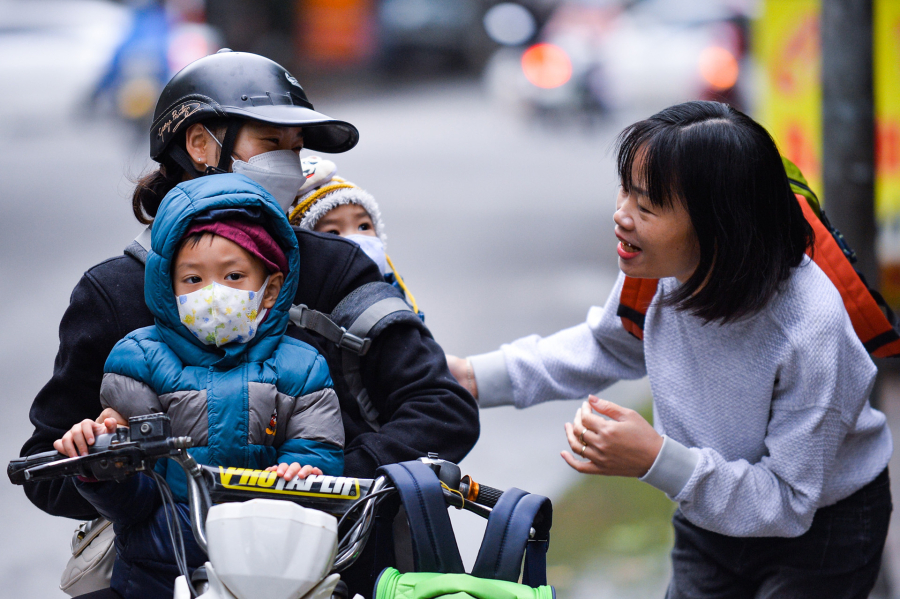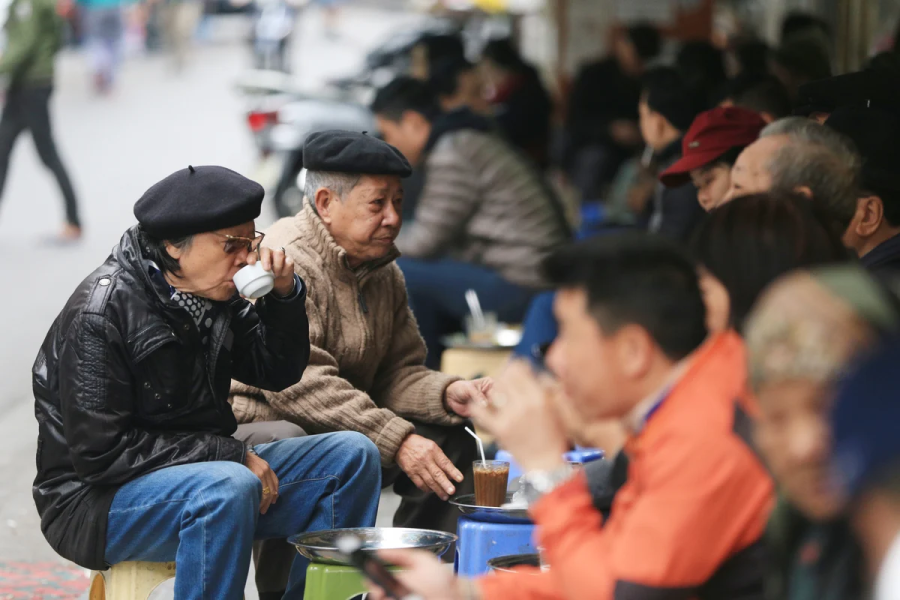According to the Ministry of Health’s recommendations, when the temperature drops, people need to keep their bodies warm. It is important to keep the feet, hands, chest, neck, and head warm, avoid going outside when the temperature is too low, and not expose oneself to sudden cold weather.

Remember to keep your body warm when going outside (Illustrative image)
In the morning, when waking up, it is advised not to get out of bed immediately but to lie on the bed and gently move the body for 3-5 minutes to gradually adapt.
Regularly drink a glass of warm water before going to bed and consume warm foods and beverages to increase energy and keep the body warm.
In addition, it is important to develop healthy eating habits, limit smoking, alcohol, and foods high in fats, and engage in appropriate physical activities.
Manage existing medical conditions well, stabilize blood pressure in people with high blood pressure, and stabilize blood sugar in diabetic patients.

Especially during cold weather conditions, experts recommend not using coal for heating and not sealing doors indoors.
Common illnesses during cold weather
1. Respiratory illnesses
Cold and freezing air can have a significant impact on the respiratory system. Breathing in cold air can cause irritation and constrict the airways, worsening conditions such as asthma and bronchitis.
In addition, the dryness of cold air can strip away the protective mucus in the respiratory system, making individuals more susceptible to respiratory infections.
2. Common cold and flu
People with weakened immune systems exposed to prolonged cold temperatures may experience stress on their bodies, making them more susceptible to common colds and flu.
3. Increased joint pain
Cold weather can increase the frequency of joint pain, especially for individuals with arthritis. Decreased temperatures can lead to increased joint stiffness and discomfort.

Individuals with joint diseases should pay attention to keeping their bodies warm (Illustrative image)
Keeping joints warm with multiple layers of clothing and maintaining physical activity, even when indoors, can help manage these symptoms. Additionally, maintaining a healthy lifestyle, including a balanced diet and hydration, contributes to overall joint health.
4. Cardiovascular stress
During cold weather, the body has to work harder to maintain internal temperature, which can be particularly challenging for individuals with heart conditions. Therefore, cold weather can induce stress on the cardiovascular system, potentially leading to increased blood pressure and heart rate.
For individuals at risk, it is important to dress warmly and avoid excessive exertion in extremely cold weather.
Unlock Benefits of Meowington’s Meow-tastic Feline Elixir for an Exciting Feverish High
Vietnamese people’s fondness for mangoes is well-known, and they are more than just delicious tropical fruit. Not only do mangoes boast a sweet and sour taste that make them popular for both snacking and cooking, but they also offer a host of health benefits to those who consume them. Originating from Africa, mangoes are now widely grown in both Asia and Latin America.




































